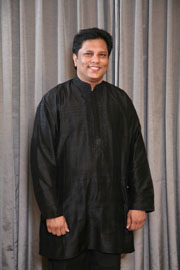The dire situation for journalists in Sri Lanka who have fallen out of favor with the government has not gone unnoticed at the U.S. State Department. On March 23, Secretary of State Hillary Clinton sent a letter to Senator Robert Casey, who chaired the Senate Foreign Affairs subcommittee hearing on Sri Lanka on February 24. Seven senators had written to her about their concerns in Sri Lanka after the meeting.
Clinton addresses the full range of human rights abuses in the country, and at the end of her letter she specifically tackles the issue of attacks on journalists. A pdf of the letter is here, but here’s also an excerpt:
“I share your concerns about the need to protect Sri Lankan journalists and freedom of speech and the State Department has taken steps to assist those who have been threatened. Our latest Country report on Human Rights documents a broad decline in fundamental human rights and the failure of the government to prosecute abusers. However, because it is based on the 2008 calendar year, the report does not document the targeting of journalists since January 2009. Our embassy in Colombo continues to raise publicly and privately–with the government of Sri Lanka–the need for media freedom and the end to human rights abuses.”
The U.S. Embassy and many other diplomatic missions have been leaning on the government about the treatment of journalists, but the effect is hard to measure. There have been no more hit motorcycle-mounted hit squads attacking journalists in their cars, and no other bomb attacks on broadcasters, so maybe the message has been heard. But the government hasn’t backed off from its anti-media strategy.

On April 2, the magistrate hearing evidence in the pre-trial hearing for Lasantha Wickramatunga’s murder on January 8 continued the case until April 16. There has been little movement, despite the government’s claims that it’s moving ahead with due diligence.
The suspect said to have stolen Wickramatunga’s phone was remanded into custody until April 16. A friend messaged me from Colombo, saying that the Mount Lavinia police told the court that “their investigations were not over and they were still probing the telephone numbers recorded in Wickramatunga’s mobile phone.” However, it’s interesting that Moratuwa University–Sri Lanka’s best engineering university–said the police have not bothered to collect its telephone data report, which was nearly completed in early March. The police had earlier asked Moratuwa’s lab to extract as much information as it could from Wickramatunga’s SIM card and phone memory.
And, for the record, there has been no movement in the investigation into the January 23 attack on Upali Tennakoon either. Police have said they are at a dead end.
Meanwhile, Sri Lankan journalists who have come under attack or faced harsh criticism have stepped back for fear of their lives. We know of about nine Sri Lankan journalists who have withdrawn from public life and their careers. Some have fled Sri Lanka, others are still in the country. Many of the Sri Lankan journalists who have been silenced have asked that their names not be mentioned–requests we are continuing to honor.
Sonali Samarasinghe Wickramatunga, Lasantha Wickramatunga’s wife, who has been keeping a very low profile, told me earlier this week after I asked her why she wasn’t playing a more public role these days:
“On the morning of Feb 13, our neighbor alerted my sister that two persons on a motorbike very like that which had followed Lasantha on the day of the murder was seen watching our house for quite some time. The neighbors also revealed that, on the morning of the murder, they had seen a black motorbike and two persons leaving our premises one wearing a black bandana on his head, ‘as worn by the army security personnel guarding VIPs.’ They said it was only later that they connected that with the murder. Of course Lasantha and I also saw a black motorbike with two persons in black wearing black helmets whiz past our car as we stopped in the driveway [on the morning Lasantha was killed].”
And my friend in Colombo friend said yesterday, when I asked about the ongoing situation overall:
“[T]he government offensive against journalists seems to be continuing. It has appointed a Parliamentary Select Committee to probe the writings and the contributions of pro-LTTE Sri Lankan journalists who have been contributing articles to foreign non-governmental organizations, which might be deemed detrimental to the interests of Sri Lanka.”